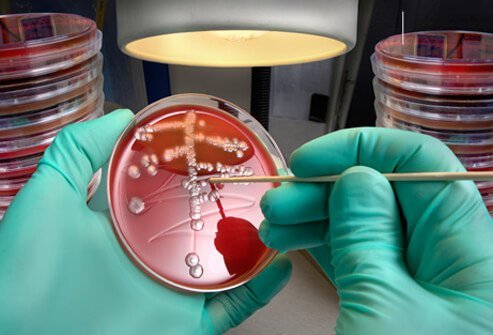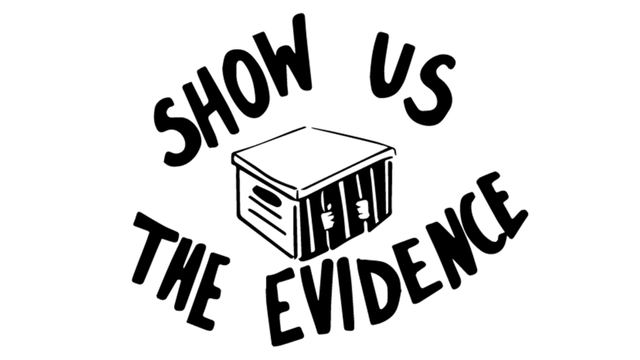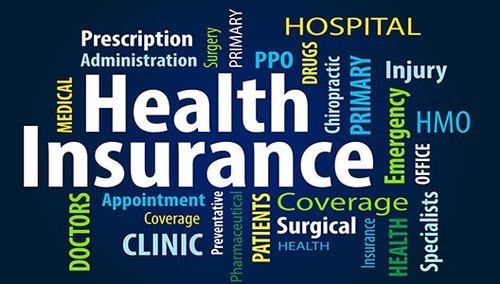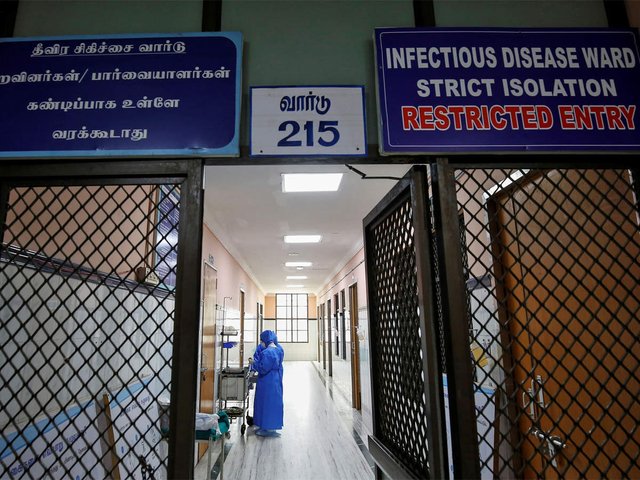Why the USA Health System is FAILING to fight Coronavirus?
A man who returned to the United States from China last February felt a cold and went to an emergency room fearing he had caught coronavirus during his trip.
After a couple of tests, the doctors gave him the good news: it was just a common cold. They prescribed some medications for the discomfort and sent him home.
A letter he received a couple of weeks later almost made him sick again: he owed the hospital more than $ 3,000 for the costs of the tests they had done on him.
Are we doing this right?
Can USA fight the villain of 2020, Coronavirus?
The problem with the number of cases:

One of the events that causes the greatest confusion among the American scientific community is the number of cases officially reported by health authorities.
According to the Centers for Disease Control and Prevention (CDC), the state public health organization charged with monitoring the virus, as of Tuesday, March 11, 696 cases and 25 deaths had been reported in the United States.
And although the experts consider that the statistics of the organization are reliable, they believe that the problems that the CDC presented from the beginning to monitor the cases led to their figures not currently accounting for the true expansion of the virus by USA
The numbers the CDC gives are accurate, but the question is whether they really reflect the distribution of the coronavirus across the country.
The USA is a huge nation.
Is the disease still focal in only a few places as these data indicate?
Has it been widely distributed across the country?
It's something we don't know for sure.
The problem with testing:

The main reason why there are no more reliable statistics on the situation of the coronavirus in the USA. It is linked to the paucity of tests to detect covid-19 sufferers.
The problem started when the CDC decided that they would be the ones to manufacture the devices to examine potential patients.
The result was that when they started shipping the test kits to the states, they were found to be malfunctioning, defective, and had to be replaced. It was a process that took time, and therefore many states were unable to start doing these tests until very recently.
For more than a month, each state had to send samples of possible contagion by mail to CDC headquarters in Atlanta, the only ones authorized to perform the tests.
According to official figures, until last Tuesday, only 79 state or public health system laboratories had the capacity to perform the tests, in a country with more than 327 million inhabitants.
Another limitation was that private laboratories did not obtain federal permits to carry out the tests until February 29, which also limited the number of people who could access examinations for the coronavirus.
The problem with access to evidence:

The problems did not end with the distribution of the test kits .
Unfortunately, the test is not accessible to anyone suspected of having the virus. Until now, there is a list of criteria determined by the CDC that a patient must meet in order to undergo a test to detect the presence of coronavirus.
Under this criterion, doctors can only prescribe the test to clinical pictures that show symptoms such as cough, fever and notable respiratory problems , but not to those who do not present symptoms even though they have been found to be at risk.
In the private part, the laboratories already accept specimens from anyone for analysis in a very easy way, upon medical prescription, but logically this is not accessible to the entire population, because it has a high cost for insurance.
In most countries in Europe and Asia affected by the epidemic, tests to detect the virus are performed free of charge on all people suspected of having been infected, even before symptoms.
In some nations, such as South Korea or Germany, a mechanism has been created where people can even be tested from their cars.
The idea that someone can easily get tested like people in other countries do The US is not ready for that. This in itself can become a problem in containing the virus.
One of the problems with this virus is that it has an incubation period of up to two weeks in which symptoms do not always appear, but it is transmitted. So, if tests can be done in cases where there are strong suspicions, it is a measure it can help stop the spread of the virus.
Until this Wednesday, the number of people that the United States does not know is unknown. have undergone tests to detect the coronavirus.
The CDC stopped publishing the figures on the matter without explanation at the beginning of March , but then the number was only around 1,500, when more than a month had passed after the first infections were reported.
Now it only publishes the number of the samples analyzed with which they began to make the tests (until this Wednesday they amounted to 11,079), but the data, however, does not indicate the number of people, since a single patient can be taken various samples.
For an idea, you have South Korea , where the first cases were reported on the same date as in the US, it has conducted tests over 210 000 people and performed an average of 20 000 examinations of coronavirus all days, more than the total number of samples that the US has analyzed in over a month.
In the UK, where three deaths from the virus have been reported, nearly 30,000 potential infections have been evaluated and an average of 1,000 tests are performed per day.
The problem with insurance:

More than 27.5 million Americans do not have access to health insurance, according to Census Bureau data, which could lead to many who have symptoms or require treatment not going to hospitals for fear of high costs.
But even for many who do have insurance, the amount of money that insurers don't cover, can sometimes be in the thousands of dollars. It can also make many dismiss the possibility of going to the doctor.
According to data from the NGO Commonwealth Fund, more than 44 million people are in this group, which is defined as "insufficient insurance".
Some states are covering the costs associated with testing . However, if patients have severe respiratory symptoms as a result of covid-19, those who are uninsured or underinsured will be most affected by the financial implications of the treatment.
A 2019 survey by Gallup and West Health indicated that 26% of Americans had postponed medical treatments in the past 12 months due to cost, and 19% had stopped buying the indicated drugs for the same reasons.
Meanwhile, almost half of the respondents answered that they were "concerned" or "extremely concerned" that a potential health situation in their homes could lead to bankruptcy.
In addition, more than 10 million undocumented immigrants live in the United States, and a new Trump administration regulation that came into effect last month limits the possibility of residence in the country to those who use government insurance or other health benefits. .
At this point in the disease, it is important that steps are taken so that the entire population suspected of having been infected can access the tests and isolate themselves to avoid the infections.
Problems for isolation:

The potential increase in cases that will be recorded in the coming days will require not only government and state actions, but also on an individual level.
US as a nation should individually do what we can to protect the health of others. Those who can work from home must choose to do so. Those who are ill should isolate themselves.
The CDC has suggested companies encourage their employees to stay home and work remotely or take sick days if they show symptoms.
However, according to Labor Department data, a quarter of the US labor do not have access to paid sick days .
The situation becomes more critical for those who do not have fixed contracts or employees of services such as restaurants and hotels, who, contradictorily, are the people who have direct contact with the public.
We hear that those who are sick should self-isolate. However, this leaves out people who cannot work remotely or who do not have paid vacations, who would be left without a way to support themselves financially.
The consequence of this, according to the expert, is that many will continue to work even if they experience respiratory symptoms, which could only exacerbate the public health crisis.
If the entire US population were to catch coronavirus in the next two weeks, our healthcare system would not be able to handle the tremendous number of hospitalizations and deaths that would occur among the people most susceptible to the virus," he says.
Democratic congressmen have asked the government to take measures to guarantee sick days to the sick and in his message on Friday Trump indicated that he would announce "emergency measures" in this regard, although not what type of workers would benefit.
The current situation requires maximum attention, because if the country's health system currently has the resources to deal with the epidemic The unpredictability of the virus makes it impossible to know what will happen in the near future.
"The concern is how long supplies will last , given the potential range of estimates for the impact of the epidemic. Let's hope the situation becomes better in the upcoming days. :)
The Hope lies everywhere...

Thank You for reading till the end.
Here's my recent informative posts on Coronavirus on Steemit which you may want to read:
- Coronavirus: What does a nCoV19 do to our Human Body? (and How?)
- Coronavirus: We are very close to a global recession
- Coronavirus: What is the difference between Pandemic, Epidemic, and Endemic Infection?
- Coronavirus: The Risk of Homemade Hand Sanitizers
Follow me @nirmal if you want to get regular updates. I also run a Tech and SEO Blog HiTricks. If you are from INDIA, do visit my blog. :)
Finally, stay safe. Keep others safe. Peace. :)
Source
Direct translation without giving credit to the original author is Plagiarism.
Repeated plagiarism is considered fraud. Fraud is discouraged by the community and may result in the account being Blacklisted.
If you believe this comment is in error, please contact us in #disputes on Discord
Please note that direct translations including attribution or source with no original content is considered spam.
But the end of all things has drawn near. Therefore be sober-minded and be sober unto prayers.(1 Peter 4:7)
Question from the Bible, What does the Bible Say About Tithing?
Watch the Video below to know the Answer...
(Sorry for sending this comment. We are not looking for our self profit, our intentions is to preach the words of God in any means possible.)
Comment what you understand of our Youtube Video to receive our full votes. We have 30,000 #SteemPower. It's our little way to Thank you, our beloved friend.
Check our Discord Chat
Join our Official Community: https://steemit.com/created/hive-182074
You bring up excellent points/pains about the United States healthcare and governmental system. It's not an easy problem to solve, making it much worse was the need for air travel to keep economic stability. The flights could have been stopped 2 months ago with minimal cases. The first case in my state came from Italy.
Fingers crossed. 😶